science (Page 10)
Now in its third year of testing, the artificial intelligence just earned its best mock entrance exam score yet.
Every year, tech giants like Apple, Samsung and HTC give us more features and better, often bigger, displays to look forward to in our smartphones. But so far they still haven’t managed to come up with a way to tackle perhaps the most common problem users have, which is dropping your phone and cracking the screen.
However one research team at Tokyo University is hoping to change that by creating glass that is nearly indestructible. If the team achieves its goal, the glass could be used in everything from buildings to consumer electronics as soon as 2020.
Everyone knows the story of Cinderella, right? It’s a classic tale of a young woman who’s transformed into the most enchanting lady in the kingdom when her fairy godmother shows up and gives her a beautiful dress, loose-fitting footwear, and a pair of shapely, ample breasts.
Wait, that last part actually isn’t in the traditional version of the fairy tale. Nevertheless, one Tokyo-based cosmetic surgery clinic is offering something it calls the Cinderella Breast Augmentation procedure, which can increase your bust size by up to one and a half cups. But just like Cinderella’s magic ended at the stroke of midnight, so too do your breasts return to their normal size the next day.
Among the many problems presented by using fossil fuels such as petroleum, one of the more pressing issues is their limited and rapidly decreasing supply. Unfortunately, it would take thousands of years of organic matter decomposing and compressing under layers of the Earth to replenish the supply in the manner in which it was first made, and that’s an unlikely business.
But now it’s been reported that a professor from Kyoto University and his team have found a way to create petroleum efficiently and cheaply. Their method uses no energy-consuming high pressures or temperatures and only requires water, petroleum, and carbon dioxide. As a result, it can be done so cheaply that KTV reported 100 yen (US$0.83) of oil can be synthesized using only 3 yen ($0.02) worth of electricity.
It all seems to good to be true, and in fact it may not be true. With published peer-reviewed studies, mysterious television appearances, and lack of mainstream media coverage. We honestly can’t figure out is this amazing breakthrough or not. And neither can anyone else as science enthusiasts take to Twitter to find answers.
Eating catfish is looked down upon by many people in Japan who regularly enjoy a plethora of ocean-raised fish. Even though the Japanese diet is no stranger to aggressively aromatic food such as natto, diners here simply cannot get past the stink of these bottom feeders.
Eel on the other hand is a much-loved freshwater fish that is a summer hit across Japan served on top of rice with a sweet sauce. But with this popularity comes a threat of overfishing and depletion of the species. Faced with this problem, Associate Professor Masahiko Ariji of Kinki University has found a way to raise catfish which taste like eel.
Since its announcement earlier this year, there has been a lot of curiosity over this flavor-modified fish. Now, attendees to the Catfish Festival in Hashima City, Gifu Prefecture will get to try a very limited supply before it gets released for public consumption.
The Edo Period was a time of great change for Japan, in just about every way possible. Perhaps one of the areas of biggest change, though, was science and medicine, thanks to the numerous scholars who spent years learning not only from Western sources but also from their own work.
One of the pioneers of medicine in the Edo Period was Toshuku Neguro, an ophthalmologist who sketched the first Japanese diagram of the human skeleton. While it was likely a fairly gruesome job, Neguro’s sketches are somehow almost…cute?!
Japan has had a pretty good track record with the annual Ig Nobel Prize. Scientists from all over the country have been awarded for nine years straight for their contributions to wacky and humorous research. Last year, Professor Kiyoshi Mabuchi recieved the Ig Nobel Prize in Physics for determining exactly how slippery a banana peel on the floor is.
Now, Dr. Hajime Kimata of the Osaka Prefecture Neyagawa Allergy Clinic has been given the Ig Nobel Prize in Medicine. However, rather than investigating a silly topic, Dr. Kimata’s findings were actually rather sweet: Kissing can reduce a person’s allergic reactions.
Many people that work a weekday 9-5 job consider Mondays to be the bane of their existence. Unsurprisingly, there doesn’t seem to be a lot of love for that first day back to the office after a fun weekend.
But for those caught in rush hour traffic this past Monday in Thailand, it was anything but dull and monotonous thanks to a shooting star sighting caught on camera by a number of drivers on their way to work.
This year marks the 60th anniversary of the Sendai Astronomical Observatory, which was opened in 1955 thanks to generous donations from the citizens of the city of Sendai and other contributors. Traditionally, the 60th anniversary gift is diamonds, and as everyone knows, diamonds are forever.
But don’t we also kind of hope that Earth is forever, too? One of the many items the observatory sells is a lollipop with the image of the earth printed on it. The effect will leave you…earthstruck.
Early ice cream production methods date all the way back to B.C. times, and even today people are still coming up with new and improved ways to enjoy this tasty treat. In Japan, this sometimes means inventing weird ice cream flavors or combining it with other popular foods like ramen. In fact, some Japanese people even believe you can learn a thing or two about another person’s personality by watching how they eat their ice cream.
But Japan isn’t the only country with a fondness for ice cream. The United Kingdom, for example, recently ranked in as one of the top 10 ice cream-consuming countries in the world. Not only do people in the U.K. enjoy satisfying their sweet tooth, they’re also coming up with ways to savor their ice cream longer, as a result of new research by two Scottish universities.
A little while back, we brought you news of Electrical Udon developed by Kurare of Arienai Rika (“Unbelievable Science”) for an event to be held in Osaka. Well, that event has come and gone, and we were fortunate enough to be there to get a taste of his technicolor noodles along with some other off-color foods like blue rice topped with even bluer curry and fried chicken with a secret green sauce.
We also got to see some of the DIY science that made Arienai Rika a cult hit with science and tech enthusiasts in Japan.
Japanese brewing and distilling company Suntory Holdings Limited recently announced their plans to send samples of whiskey to the International Space Station in order to investigate the effects of zero gravity on the aging process.
Japan may have an image as an all-work and no-play sort of place, but you’ve got to give the country credit for coming up with Umi no Hi. Observed on the third Monday of July, Umi no Hi literally means “Ocean Day,” but “Marine Day” and “Beach Day” would also be acceptable translations. It’s a national holiday expressly created to give everyone a day off to go have fun at the beach, and it just might be the greatest socially accepted reason ever for blowing off work.
This year, Japan got so into the spirit of the holiday that even people in prefectures with no coastline swore they could smell the sea. But was this just a summery olfactory hallucination, or a legitimate Umi no Hi miracle?
There are all kinds of urban legends and so-called old wives’ tales that proclaim the health benefits, or time-saving benefits, borderline magical properties, or terrifying dangers of doing X or Y. We’ve heard them all: Don’t eat within thirty minutes of swimming or you’ll get a cramp and literally die, bundle up when it’s cold outside or you’ll get a cold (by the way, oh my god, people, stop it with this; a cold is a virus, you don’t get it from the weather), an apple a day will keep the doctor away, a watched pot never boils, etc.
It’s almost like these old sayings and legends are the pre-Internet era equivalent of lifehacks! And since we’ve sort of been on a lifehacking streak recently, we decided to give one of these a test for ourselves: Specifically, the rumor that sticking a spoon into the neck of a champagne bottle will keep it from going flat.
Everyone has got dinosaurs on their mind at the moment since most of the world is going crazy for Jurassic World. The exception to this is of course, Japan who can’t watch the movie until August 5. (Why Japanese movie people? Why?!?!) Not to be left out of the giant lizard game, officials in Hyogo Prefecture have confirmed the discovery of a brand new dinosaur egg. By analyzing the fossil, it is estimated that this new egg is the world’s smallest dinosaur egg ever. That’s a gigantic discovery of the tiniest kind.
Although hardly new, Japan has been undergoing something of a boom in pancake consumption in recent years. With several trendy new restaurants opening up around the country, there has also been a significant rise in the popularity of homemade pancakes as well. Yes, with its warm and fluffy texture and mildly sweet flavor it’s certainly hard to turn down a hotcake, isn’t it?
While everyone is having a good time with their pancakes, some researchers and medical professionals would like to remind us all that pancakes and similar flour based foods have the potential to not only make us very ill, but in some cases may lead to death.
But before you go cursing out these wet blankets of science for ruining yet another beloved food with their health warnings, there’s actually an incredibly easy way to not die from eating flapjacks as well.
Every once in a while we like to post an optical illusion that’s trending in Japan at the moment, and this time around we bring you the McCollough effect. However, this is one optical illusion you probably shouldn’t go through with.
Don’t get us wrong, we’re going to post the illusion for the sake of reporting on it, but you might want to consider some of our other wonderful articles instead. I read a lovely piece about sacred horses the other day.
The reason we are dissuading you from checking out this optical illusion is that its effect might not go away for quite some time. Studies have reported some after-effects last over three months. So last chance to turn back and check out our list of beautiful Japanese train stations instead.
No? Okay suit yourself and don’t say we didn’t warn you…because we’re still going to continue to warn you.
Pretty much every man, woman, and child in Japan works hard. Professionals throw themselves into their jobs, homemakers take on just about every domestic responsibility by themselves, and kids are expected to not only keep up with their regular studies, but also attend cram schools after their normal classes get out in the afternoon.
But is the Japanese work ethic so infectious that it caused a group of industrious chickens to lay an entire batch of double-yolk eggs?
Back in 2009, a research team from the University of Tokyo led by Professor Tsutomu Miyasaka found that a substance called perovskite had the potential to generate solar power. However, at the time it only had a very weak power conversion efficiency (PCE) of about four percent and would break down in just a few minutes.
Because of these sizable flaws, not could practical use could be made of perovskite and the discovery lay dormant for a few years. Then, after a Korean team managed to double the PCE in 2011, research into the material was reignited. Now as scientists around the world continue to work on it, the PCE has become well above 20 percent and comparable with the standard silicon-based solar panels that we see today.
With perovskite being drastically cheaper to produce, more flexible to use, and now as efficient as regular solar panels, could we be on the verge of a solar energy revolution?
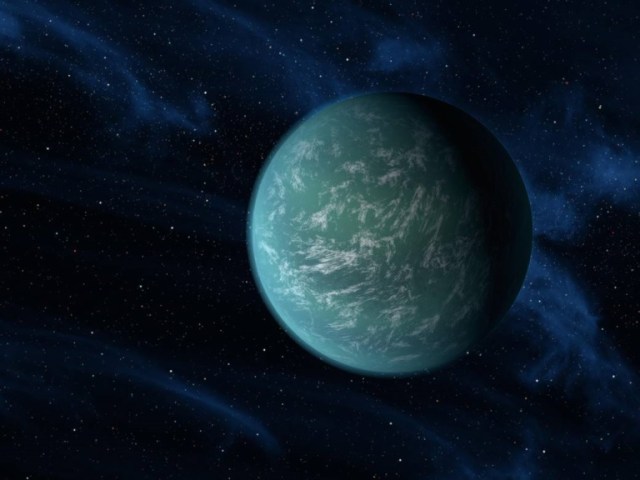



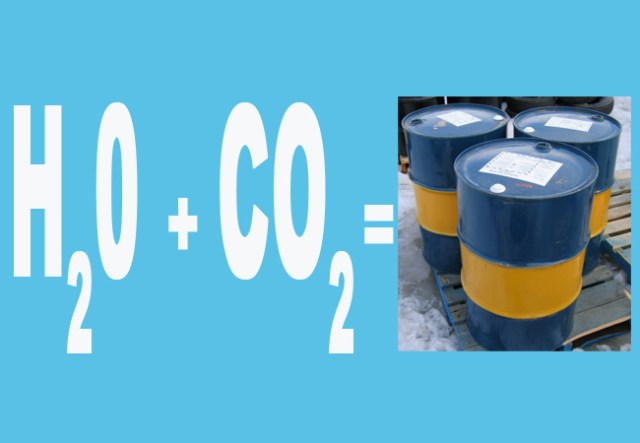
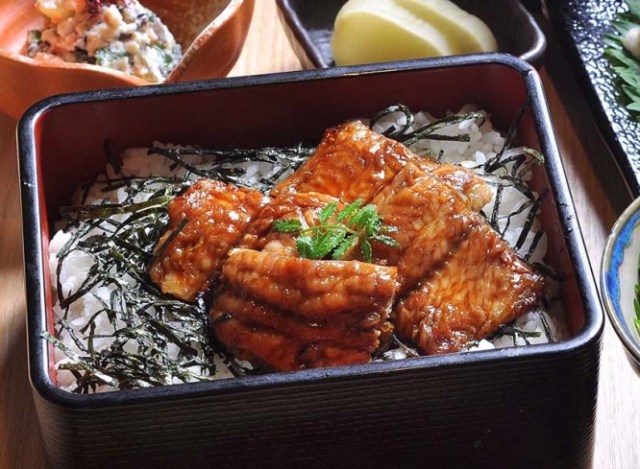
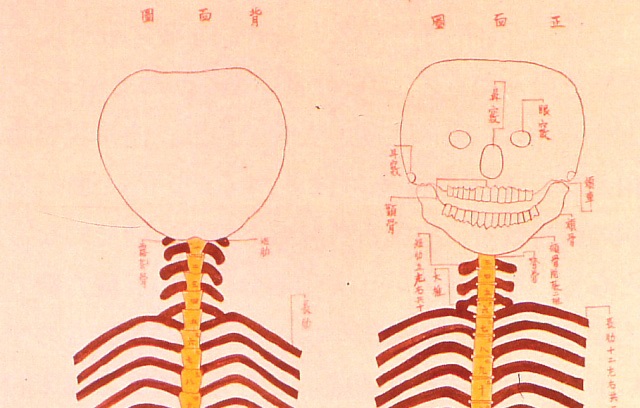
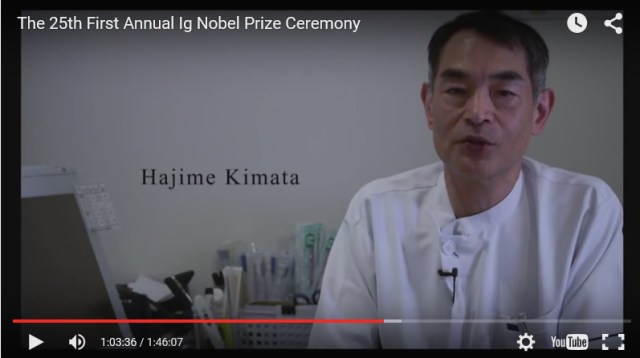

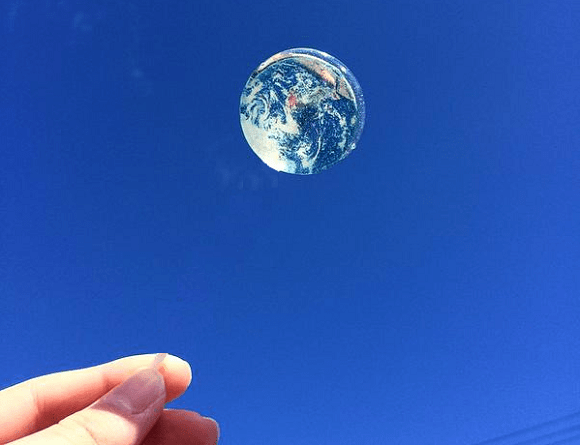
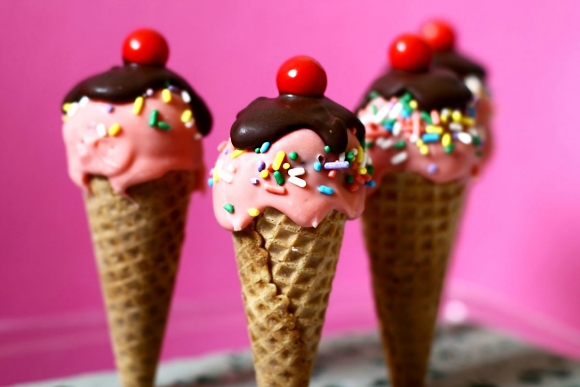
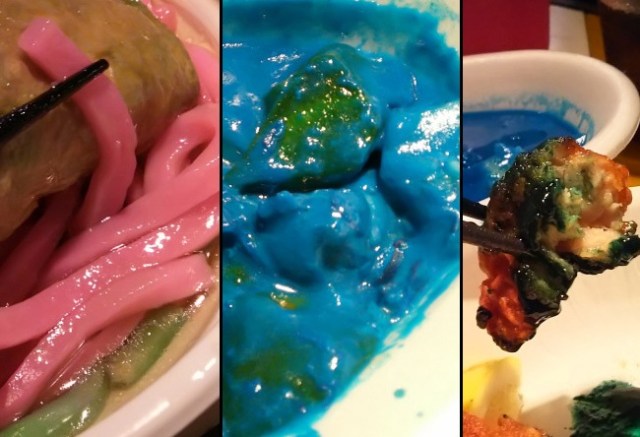
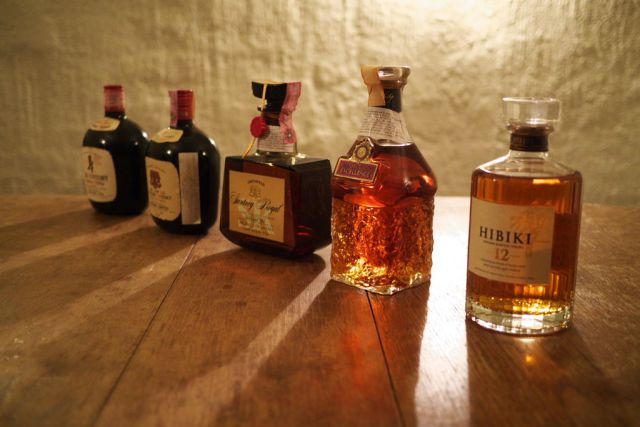
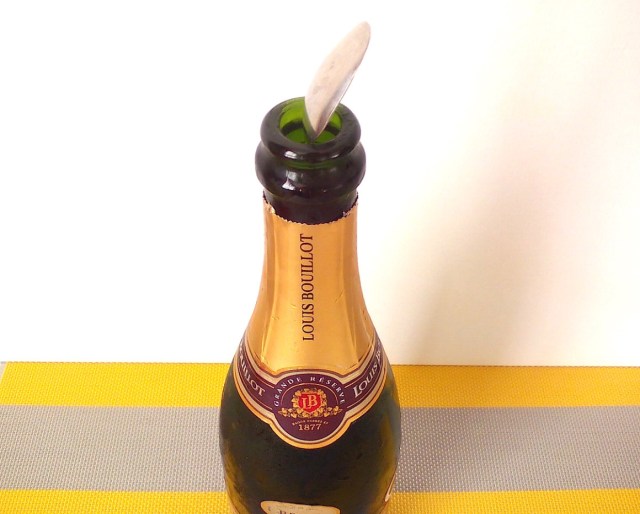



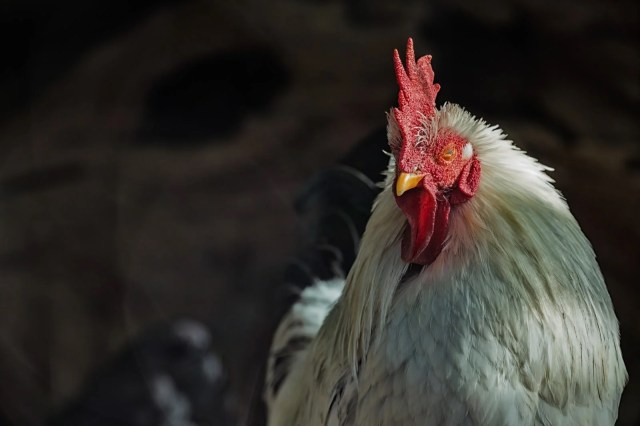
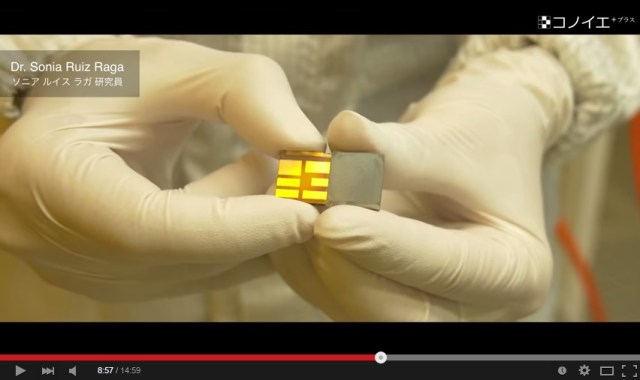
 Foreigner’s request for help in Tokyo makes us sad for the state of society
Foreigner’s request for help in Tokyo makes us sad for the state of society Historical figures get manga makeovers from artists of Spy x Family, My Hero Academia and more
Historical figures get manga makeovers from artists of Spy x Family, My Hero Academia and more Japanese city loses residents’ personal data, which was on paper being transported on a windy day
Japanese city loses residents’ personal data, which was on paper being transported on a windy day Harajuku Station’s beautiful old wooden building is set to return, with a new complex around it
Harajuku Station’s beautiful old wooden building is set to return, with a new complex around it Ghibli Park now selling “Grilled Frogs” from food cart in Valley of Witches
Ghibli Park now selling “Grilled Frogs” from food cart in Valley of Witches Heartwarming response to Twitter question confirms that yes, Tikuwa_0913, there is a Santa Claus
Heartwarming response to Twitter question confirms that yes, Tikuwa_0913, there is a Santa Claus Suntory x Super Mario collaboration creates a clever way to transform into Mario【Videos】
Suntory x Super Mario collaboration creates a clever way to transform into Mario【Videos】 Red light district sushi restaurant in Tokyo shows us just how wrong we were about it
Red light district sushi restaurant in Tokyo shows us just how wrong we were about it Japan’s cooling body wipe sheets want to help you beat the heat, but which work and which don’t?
Japan’s cooling body wipe sheets want to help you beat the heat, but which work and which don’t? We try out “Chan Ramen”, an underground type of ramen popular in the ramen community
We try out “Chan Ramen”, an underground type of ramen popular in the ramen community McDonald’s new Happy Meals offer up cute and practical Sanrio lifestyle goods
McDonald’s new Happy Meals offer up cute and practical Sanrio lifestyle goods Japanese ramen restaurants under pressure from new yen banknotes
Japanese ramen restaurants under pressure from new yen banknotes French Fries Bread in Tokyo’s Shibuya becomes a hit on social media
French Fries Bread in Tokyo’s Shibuya becomes a hit on social media Studio Ghibli releases new action figures featuring Nausicaä of the Valley of the Wind characters
Studio Ghibli releases new action figures featuring Nausicaä of the Valley of the Wind characters New private rooms on Tokaido Shinkansen change the way we travel from Tokyo to Kyoto
New private rooms on Tokaido Shinkansen change the way we travel from Tokyo to Kyoto Tokyo Tsukiji fish market site to be redeveloped with 50,000-seat stadium, hotel, shopping center
Tokyo Tsukiji fish market site to be redeveloped with 50,000-seat stadium, hotel, shopping center All-you-can-drink Starbucks and amazing views part of Tokyo’s new 170 meter-high sky lounge
All-you-can-drink Starbucks and amazing views part of Tokyo’s new 170 meter-high sky lounge Beautiful Ghibli sealing wax kits let you create accessories and elegant letter decorations【Pics】
Beautiful Ghibli sealing wax kits let you create accessories and elegant letter decorations【Pics】 Studio Ghibli releases Kiki’s Delivery Service chocolate cake pouches in Japan
Studio Ghibli releases Kiki’s Delivery Service chocolate cake pouches in Japan New definition of “Japanese whiskey” goes into effect to prevent fakes from fooling overseas buyers
New definition of “Japanese whiskey” goes into effect to prevent fakes from fooling overseas buyers Our Japanese reporter visits Costco in the U.S., finds super American and very Japanese things
Our Japanese reporter visits Costco in the U.S., finds super American and very Japanese things Studio Ghibli unveils Mother’s Day gift set that captures the love in My Neighbour Totoro
Studio Ghibli unveils Mother’s Day gift set that captures the love in My Neighbour Totoro More foreign tourists than ever before in history visited Japan last month
More foreign tourists than ever before in history visited Japan last month New Pokémon cakes let you eat your way through Pikachu and all the Eevee evolutions
New Pokémon cakes let you eat your way through Pikachu and all the Eevee evolutions Sales of Japan’s most convenient train ticket/shopping payment cards suspended indefinitely
Sales of Japan’s most convenient train ticket/shopping payment cards suspended indefinitely Sold-out Studio Ghibli desktop humidifiers are back so Totoro can help you through the dry season
Sold-out Studio Ghibli desktop humidifiers are back so Totoro can help you through the dry season Japanese government to make first change to romanization spelling rules since the 1950s
Japanese government to make first change to romanization spelling rules since the 1950s Ghibli founders Toshio Suzuki and Hayao Miyazaki contribute to Japanese whisky Totoro label design
Ghibli founders Toshio Suzuki and Hayao Miyazaki contribute to Japanese whisky Totoro label design Doraemon found buried at sea as scene from 1993 anime becomes real life【Photos】
Doraemon found buried at sea as scene from 1993 anime becomes real life【Photos】 Tokyo’s most famous Starbucks is closed
Tokyo’s most famous Starbucks is closed One Piece characters’ nationalities revealed, but fans have mixed opinions
One Piece characters’ nationalities revealed, but fans have mixed opinions We asked a Uniqlo employee what four things we should buy and their suggestions didn’t disappoint
We asked a Uniqlo employee what four things we should buy and their suggestions didn’t disappoint Princesses, fruits, and blacksmiths: Study reveals the 30 most unusual family names in Japan
Princesses, fruits, and blacksmiths: Study reveals the 30 most unusual family names in Japan Heartwarming response to Twitter question confirms that yes, Tikuwa_0913, there is a Santa Claus
Heartwarming response to Twitter question confirms that yes, Tikuwa_0913, there is a Santa Claus Suntory x Super Mario collaboration creates a clever way to transform into Mario【Videos】
Suntory x Super Mario collaboration creates a clever way to transform into Mario【Videos】 Red light district sushi restaurant in Tokyo shows us just how wrong we were about it
Red light district sushi restaurant in Tokyo shows us just how wrong we were about it Japan’s cooling body wipe sheets want to help you beat the heat, but which work and which don’t?
Japan’s cooling body wipe sheets want to help you beat the heat, but which work and which don’t? We try out “Chan Ramen”, an underground type of ramen popular in the ramen community
We try out “Chan Ramen”, an underground type of ramen popular in the ramen community Beautiful Ghibli sealing wax kits let you create accessories and elegant letter decorations【Pics】
Beautiful Ghibli sealing wax kits let you create accessories and elegant letter decorations【Pics】 McDonald’s new Happy Meals offer up cute and practical Sanrio lifestyle goods
McDonald’s new Happy Meals offer up cute and practical Sanrio lifestyle goods Deep-fried delight – Taste testing the menchi katsu from four Japanese convenience store chains
Deep-fried delight – Taste testing the menchi katsu from four Japanese convenience store chains Starbucks Japan finally makes the iced Matcha Tea Latte a permanent part of its menu
Starbucks Japan finally makes the iced Matcha Tea Latte a permanent part of its menu Limited-edition Carbonara Udon will anger noodle purists and pasta lovers 【Taste test】
Limited-edition Carbonara Udon will anger noodle purists and pasta lovers 【Taste test】 What do you eat when you catch a cold? We asked 11 of our Japanese reporters
What do you eat when you catch a cold? We asked 11 of our Japanese reporters Akihabara pop-up shop sells goods made by Japanese prison inmates
Akihabara pop-up shop sells goods made by Japanese prison inmates Gacha machine backpack is Japan’s hottest new fashion statement
Gacha machine backpack is Japan’s hottest new fashion statement